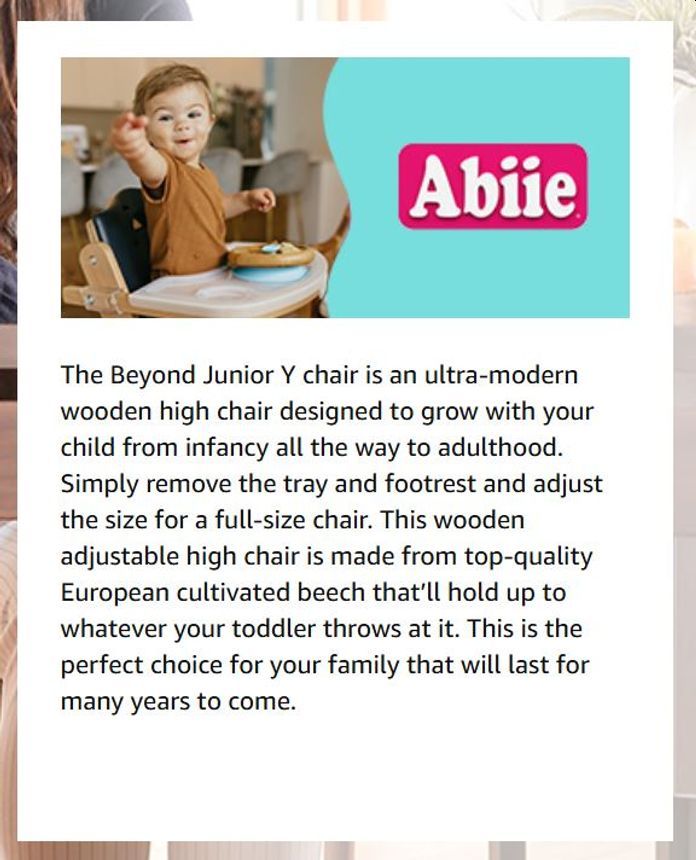- within Finance and Banking topic(s)
The Federal Trade Commission pays a great deal of attention to marketers' "Made in the USA" claims and whether they comply with the FTC's Enforcement Policy Statement on U.S. Origin Claims as well as the FTC's (relatively new) Made in USA Labeling Rule. In order to comply, advertisers must be able to substantiate that their products are "all or virtually all" made in the United States.
But what about claims that a product is made outside of the United States? Does the FTC pay attention to claims that a product is made somewhere else? And do the same standards apply? A recent FTC closing letter sheds some light on this.
The FTC looked into whether Abiie's marketing materials overstated the extent to which its high chairs and other products were made in the United States. In particular the FTC pointed to the fact that the company promoted that its products are "Proudly Made in the USA," when, in fact, they were assembled in China. In the closing letter, the FTC reported that, in order to avoid deceiving consumers, the company removed its unqualified "Made in USA" claims from its marketing materials and communicated this change to retailers as well.
Interestingly, the FTC also expressed concerns about Abbie's claims that its high chairs used "European Birchwood" without also explaining that the chairs were made in China. Although it's not entirely clear from the closing letter, it appears that the FTC thought that by advertising that its products used "European Birchwood," the company may be communicating an implied claim that the products were also made in Europe. The FTC wrote, "If, in context, an ad implies to a reasonable consumer that a product is of U.S. (or, in this case, European) origin, the marketer must have appropriate substantiation for that claim." In the closing letter, the FTC also reported that the marketer updated its marketing materials "that may have implied that its chairs are of European origin."
What are some potential takeaways from this closing letter?
First off, it's interesting to see that the FTC's "Made in USA" team took an interest in marketing materials that may potentially communicate that a product is not made in the United States. I'd be surprised to see them start focusing on advertising that just focuses on "outside of the US" claims, but it seems like, at least in connection with a "Made in the USA" investigation, the FTC may look at those types of claims as well.
Second, although the FTC doesn't say that it's applying its "all or virtually" all standard to a claim that a product is made of European origin, I think it's safe to assume that the FTC would likely apply a similar standard for that type of claim as well. (The FTC has applied the standard to other types of claims, such as Hand-Built in Brooklyn and Made in Rhode Island.) To be clear, though, the "Made in USA Labeling Rule" wouldn't apply – since that rule only applies, by its terms, to U.S. origin claims.
Third, perhaps what is most striking about this investigation is that the FTC appears to suggest here (and, admittedly, the letter is not super clear on this point) that highlighting that a particular component is of European origin may communicate an implied claim that the product is entirely of European origin. The FTC's cause for concern may have been that, if the product is mostly made of wood, consumers will think that, if you say the wood is of European origin, it also means that the product was made in Europe as well. The FTC's "Enforcement Policy Statement on U.S. Origin Claims" explains – admittedly, about U.S.-origin claims – that, "a marketer may make a claim that a particular manufacturing or other process was performed in the United States, or that a particular part was manufactured in the United States, provided that the claim is truthful and substantiated and that reasonable consumers would understand the claim to refer to a specific process or part and not to the general manufacture of the product."

The content of this article is intended to provide a general guide to the subject matter. Specialist advice should be sought about your specific circumstances.


